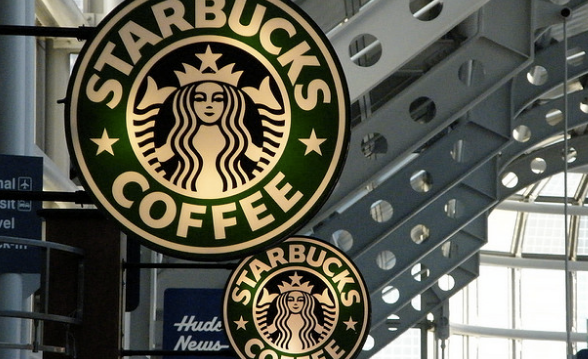Discrimination Lawsuit: Starbucks Fired Deaf Worker Who Asked For Sign Language Interpreters
An Arizona woman who worked as a Starbucks barista for seven years has filed a lawsuit against the company for allegedly discriminating against her because she’s deaf. She claims she repeatedly asked for reasonable accommodations to help her on the job and was repeatedly denied, and that she was finally fired because of her disability.
According to the lawsuit [PDF], the worker asked multiple times between March 2007 and January 2014 — when she was fired — for reasonable accommodations, such as sign language interpreters for staff meetings, training, and other important work events, and was denied in most instances.
“Between 2007 and 2014, [she] repeatedly requested reasonable accommodations to enable her to ensure effective communication, to perform the essential functions of her job, and to enjoy the benefits and privileges of employment,” the complaint states. “With these reasonable accommodations, [the plaintiff] would have been able to perform the essential functions of her job, such as taking customers’ orders at the front counter and at the drive-thru.”
After meeting with management and insisting on interpreters, she claims she was later fired as retaliation for filing a charge of discrimination with the U.S. Equal Employment Opportunity Commission. She says she was told she was fired having visible tattoos — which she’d had for the duration of her employment. Other workers also had visible tattoos, the lawsuit claims. And months later, Starbucks changed its anti-tattoo policy for employees.
The lawsuit alleges that the worker was a qualified individual with a disability who could perform the essential functions of her job with reasonable accommodations, but Starbucks refused to provide those reasonable accommodations to her.
“Defendant fired her in retaliation for participating in protected activities and on the basis of her disability,” the lawsuit claims, accusing Starbucks of violating the Americans with Disability Act.
She’s seeking compensatory damages, a permanent injunction to keep Starbucks from “engaging in unlawful employment practices that discriminate on the basis of disability in violation of the ADA,” and from engaging in retaliation against its employees for participation in protected activity. The lawsuit also wants Starbucks to create policies, practices and programs that provide equal employment opportunities “for individuals who are deaf and hard of hearing and which eradicate the effects of its past and present unlawful employment practices.”
It seems she’d also like to work for Starbucks again, as the complaint seeks a judgment that would reinstate her at her position, as well as pay her back pay and accrued sick leave or annual leave that she didn’t receive when she was fired.
“This case is not just about issues of accommodation; it’s about having the right to be treated fairly and equally in society,” said attorneys from the firm representing the ex-worker, Eisenberg & Baum.
When Consumerist reached out to Starbucks for comment on the lawsuit, a spokeswoman for the company pointed to its policy committed to inclusion and access for those with disabilities. That includes providing a “Creating a Deaf Friendly Environment” course for all partners and offering sign language interpreting services for deaf partners, “as well as real time captioning, communication equipment, video captioning, and flashing strobe light signalers for emergency evacuation notice.”
“We deeply care about our partners (employees) and offer an inclusive and accessible work environment where everyone is welcome, respected and valued. This partner was no exception,” the spokeswoman said, with no further comment on the lawsuit.
Want more consumer news? Visit our parent organization, Consumer Reports, for the latest on scams, recalls, and other consumer issues.


